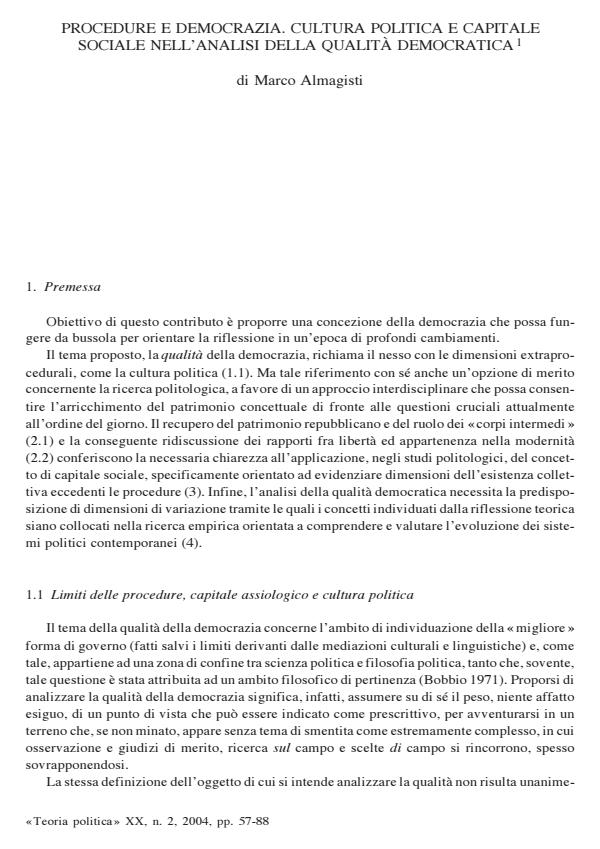Procedure e democrazia. Cultura politica e capitale sociale nell'analisi della qualità democratica
Journal title TEORIA POLITICA
Author/s Marco Almagisti
Publishing Year 2004 Issue 2004/2
Language Italian Pages 32 P. File size 170 KB
DOI
DOI is like a bar code for intellectual property: to have more infomation
click here
Below, you can see the article first page
If you want to buy this article in PDF format, you can do it, following the instructions to buy download credits

FrancoAngeli is member of Publishers International Linking Association, Inc (PILA), a not-for-profit association which run the CrossRef service enabling links to and from online scholarly content.
In this paper a new conception of democracy is proposed, which is useful both as an instrument for the conduct of empirical research on existing democracies and as a compass to be used for a better under-standing of political processes that are changing our societes. Since the positive functioning of democratic procedures is a necessary but not sufficient condition for the consolidation and the development of a democratic regime, the analysis of existing relations between the structure and the culture of a political system is needed. This perspective is not used by political science in an exclusive manner; therefore, two contributes taken from other disciplines are introduced. The first is taken from a recent field of political philosophy, republicanesim; the second is Alessandro Pizzorno’s approach for the study of identities and conversion, taken from sociological theory. These approaches are further elaborated in the present paper: on the one hand, with the aim of identifying the role of structured conflict and intermediate bodies; on the other hand, in order to better explain the use of the social capital concept in political science. The empirical theory of democratic quality and social capital that emerges from the analysis could be a contribution for the inter-disciplinary debate and a stimulus for further research on democracy.
Marco Almagisti, Procedure e democrazia. Cultura politica e capitale sociale nell'analisi della qualità democratica in "TEORIA POLITICA" 2/2004, pp , DOI: